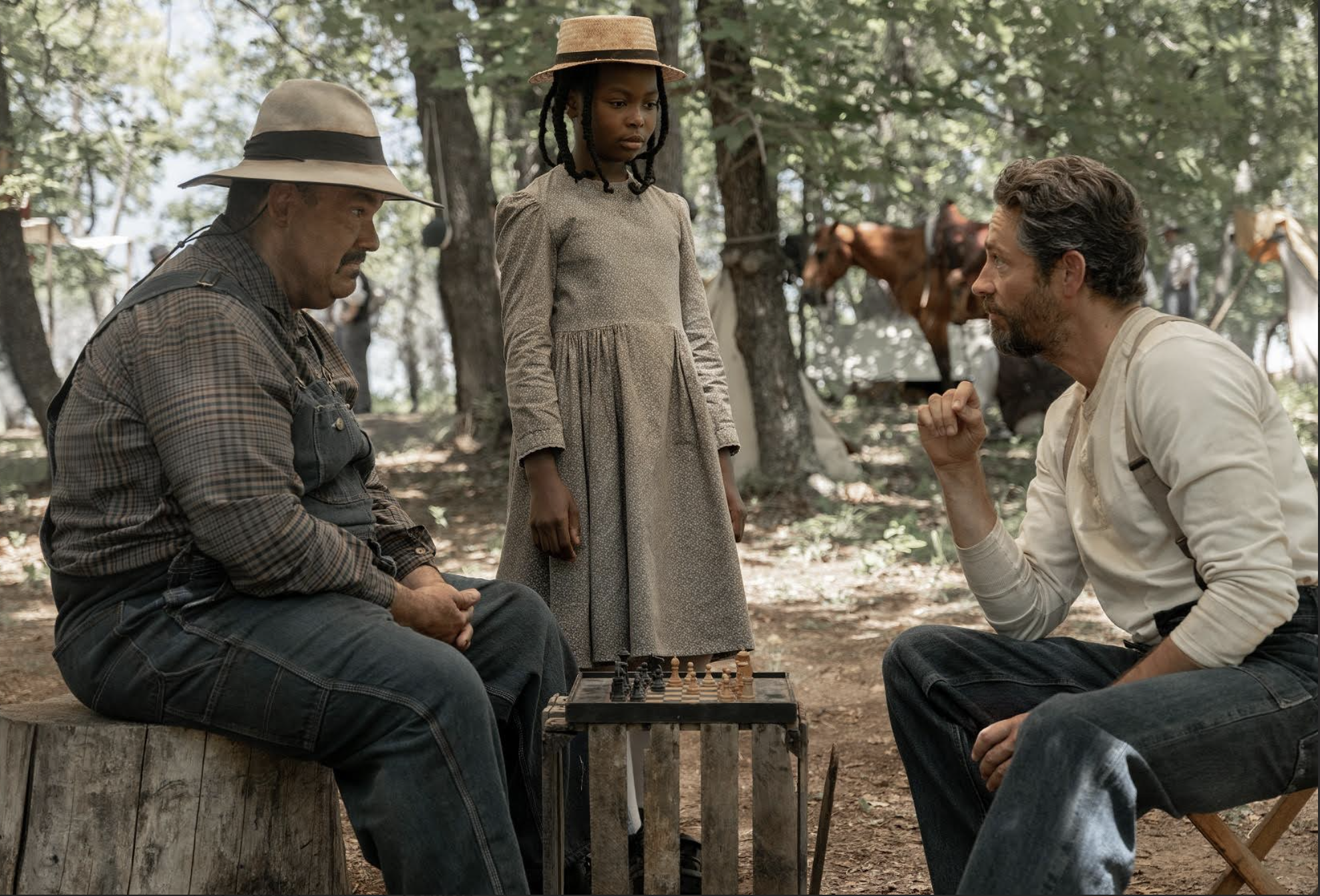
- Details
- By Native News Online Staff
The Cherokee Nation’s push to expand the television and film industry in northeast Oklahoma continues to deliver results, with several productions supported by the tribe’s film incentive program premiering this fall.
Those projects generated more than $3.6 million in spending within the Cherokee Nation Reservation and created 149 jobs for Native Americans across development, pre-production, production and post-production phases.
Launched in 2022, the Cherokee Nation’s incentive program was the first of its kind offered by a tribal government. It can be combined with the Oklahoma state film incentive and additional support from the Tulsa Office of Film, Music, Arts and Culture.
“The purpose of our film incentive is to help bring film and TV productions to our region, to utilize our resources and to hire our workforce,” said Cherokee Film Senior Director Jen Loren. “We have been very successful in that regard, and we are impressed with the impact these films have when operating here. That impact has rippling effects throughout the reservation and in our local industry.”
Set to premiere Nov. 7, Sarah’s Oil from Amazon MGM Studios tells the true story of Sarah Rector, one of the first African American female millionaires in Indian Country during the early 1900s. At just 11 years old, Rector transformed a seemingly worthless land allotment into family wealth after discovering oil. The film stars Zachary Levi, Naya Desir-Johnson, Sonequa Martin-Green, Garret Dillahunt, Mel Rodriguez, Kenric Green and Bridget Regan.
Directed and co-written by Cyrus Nowrasteh, Sarah’s Oil marks the largest production to date to use the Cherokee Film incentive.
“Our story was meant to be shot in Oklahoma, which happens to rank among the top 10 film incentive states for growth in film and TV employment, total compensation, and average compensation per worker,” said producer John Shepherd. “Thanks to the generous support of proactive partners like Cherokee Film, I rank Oklahoma first as well. We had everything we needed to make this project a success.”
For more information on Sarah’s Oil, visit sarahsoilfilminspires.com.
Three additional projects from Tulsa-based Rebellium Films, led by Talia Bella and Randy Wayne, also benefited from the Cherokee Nation’s incentive program. Rebellium is helping advance Oklahoma’s profile as a production hub by offering full-service production, post and finishing capabilities.
The coming-of-age dramedy Everything to Me, written and directed by Kayci Lacob, premiered in theaters Sept. 5 and is now streaming on Apple TV.
Cottonmouth, a western thriller set in 1895 Indian Territory and directed by Brock Harris, is available for streaming Nov. 4 on Apple TV, Prime Video and Google Play.
The Beldham, a psychological horror film written and directed by Angela Gulner that explores motherhood and intergenerational trauma, will begin streaming Nov. 7 on Apple TV, Prime Video and Google Play.
More information is available at rebellium.tv.
More Stories Like This
Watermark Art Center to Host “Minwaajimowinan — Good Stories” ExhibitionMuseums Alaska Awards More Than $200,000 to 12 Cultural Organizations Statewide
Zuni Youth Enrichment Project Takes Top Emerging Artist Apprentices to Phoenix for Artistic Exploration and Cultural Immersion
From Dishwasher to Award-Winning Chef: Laguna Pueblo's Josh Aragon Serves Up Albuquerque's Best Green Chile Stew
Rob Reiner's Final Work as Producer Appears to Address MMIP Crisis
Help us defend tribal sovereignty.
At Native News Online, our mission is rooted in telling the stories that strengthen sovereignty and uplift Indigenous voices — not just at year’s end, but every single day.
Because of your generosity last year, we were able to keep our reporters on the ground in tribal communities, at national gatherings and in the halls of Congress — covering the issues that matter most to Indian Country: sovereignty, culture, education, health and economic opportunity.
That support sustained us through a tough year in 2025. Now, as we look to the year ahead, we need your help right now to ensure warrior journalism remains strong — reporting that defends tribal sovereignty, amplifies Native truth, and holds power accountable.
 The stakes couldn't be higher. Your support keeps Native voices heard, Native stories told and Native sovereignty defended.
The stakes couldn't be higher. Your support keeps Native voices heard, Native stories told and Native sovereignty defended.
Stand with Warrior Journalism today.
Levi Rickert (Potawatomi), Editor & Publisher


